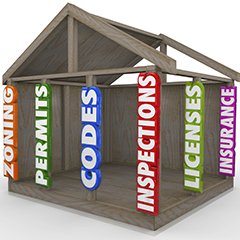Investigate Zoning Laws Before Committing to a Location
May 14, 2015 | Business Plans
 As a Maine-based small business owner, you know how important location is. Before choosing a location, you looked into things like foot and car traffic, as well as the occupancy rates of neighboring buildings. However, it is just as important to research the local zoning laws
As a Maine-based small business owner, you know how important location is. Before choosing a location, you looked into things like foot and car traffic, as well as the occupancy rates of neighboring buildings. However, it is just as important to research the local zoning laws
You wouldn’t want to find out after signing a lease that the location you choses cannot legally house your type of business. At the very least, make sure your lease or contract has a contingency clause stating that the lease won’t be binding or the sale final if you don’t get zoning approval.
Zoning laws vary from place to place, and let you know how the land you buy or lease can be used. The most commonly used classifications are commercial, industrial, residential, and agricultural. These can be used in various combinations. If a zone is strictly residential, you can’t operate a business there at all. If the land is in a commercial, industrial, or agricultural zone, or a combination (called mixed-use), then the zoning laws specify the kind of business you can operate in a particular area.
Within each of the general categories are more narrowly defined divisions. For example, an industrial zone may be zoned “heavy”, “light”, or “research.” A commercial zone can be divided into a number of different classifications, including small stores, shopping centers, gas stations, restaurants, etc.
Even if your use matches the zoning designation for the area, it’s still important to know the local zoning laws. There are probably locally specific requirements about signage and parking, in addition to the types of businesses that can be in a particular location. For instance, if your company could increase the car traffic in the neighborhood, you may be required to develop a plan for dealing with the new parking needs in the area. Or, as happens frequently in Maine, if the neighborhood is trying to preserve a certain kind of look, you might be restricted from putting up certain signage.
Zoning ordinances and zoning maps are public records, and at a minimum, business owners should visit their local zoning offices to learn about relevant laws. In some localities, if you have a legal description of the property (name, address, tax map and parcel number), you can phone the appropriate zoning department or city hall or e-mail a request for information. Also, many communities have zoning maps and ordinances online and in local libraries.
Don’t forget about this crucial step when looking for the ideal location for your small business. To find out more about the impact of zoning laws, contact Filler & Associates.
